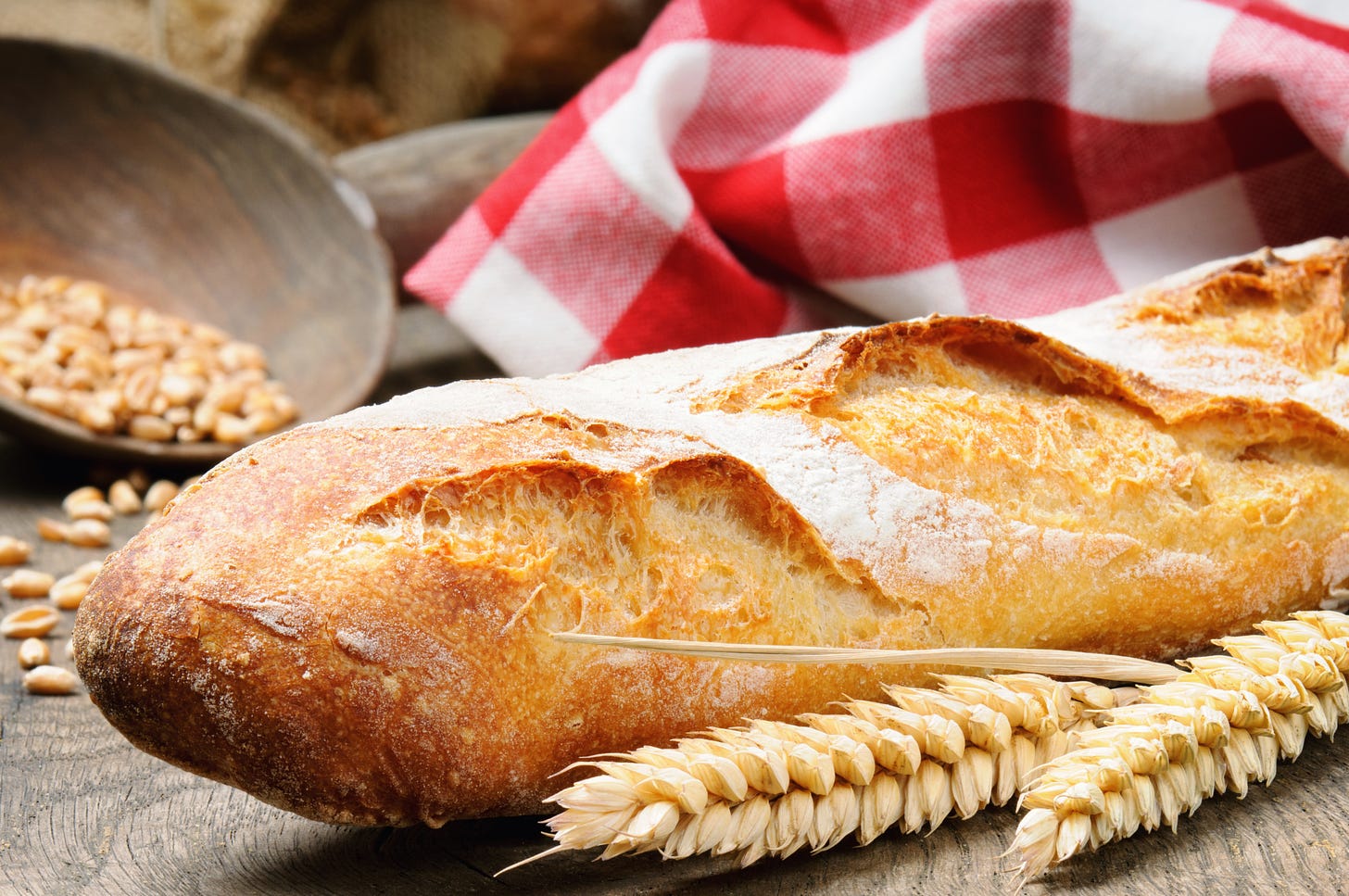
You can buy a baguette for about a euro in Paris. Fresh. Soft and moist on the inside. Crisp but not hard on the outside. There’s also something about the taste. Their baguettes are … rich, maybe. Nutty. Buttery. I don’t know, I’m not a food critic, but they’re fantastic. Just ask my wife Daniela, who recently changed her religion to French baguette. Definitely worth the one euro.
In general, I found Paris to be reasonably priced. Patisseries peddling their transcendent baguettes and equally life-changing panoply of pastries, over which the legendary croissant presides. OK, sorry, I know, I’m laying it on a little thick, but the point I’m trying to make is that they’re really, really good and pretty cheap.
We found a lot to be affordable in Paris. The local grocery stores. Cafés. Takeout food. Even the wine. Sure, when you delve deep into fine dining in Paris, the euros start to skyrocket, but the default standard is good-quality and affordable.
Let me be clear: I know Paris is not an especially affordable city. It’s one of the most expensive cities in the world in fact, but I wouldn’t have noticed because I live in THE most expensive city in the world (tied with Singapore). Everywhere seems affordable by comparison.
It just feels like you’re actually getting something for your money in Paris. Don’t get me wrong, I love New York. It’s awe-inspiring and seemingly infinite. As Myrna Roy once said, “If you’re bored in New York, it’s your own fault.” It’s true. There’s something for everyone.
But New York is also spectacularly uneven. You might have the best bagel you’ve ever tasted in one place, only to spot a giant roach strolling across a tray of mac and cheese in the buffet at the lunch spot right next door. You might behold an elegant example of Edwardian architecture abutting a schlock-o-rama, like Jack’s 99 Cent Store. And that’s without even getting into the profound income inequality. It really is a tale of two cities.
In New York, you’re always compromising something. You want an apartment? Well, pick two (if you’re lucky): affordable price, good location, or enough space. There’s a lot of great stuff, but you have to pay through the nose for the privilege.
To be fair, I’ve only been to Paris on vacation, so I don’t know what the true cost of living is. Maybe real estate prices are just as bad there, but my broader point, really, is that cost of living determines so much of your lifestyle and quality of life.
Groundbreaking stuff, I know — “expensive, bad” — but what’s made me look at this differently is remote work.
Daniela and I bought our house in Westchester, just north of the city, two weeks before New York went into lockdown. I’m glad we weren’t stuck in our one-bedroom apartment in Astoria. Our town is great. Charming little downtown right on the Hudson River and across from the Palisades. But it’s expensive.
It’s a small house in a good location — just a 35-minute train into Grand Central. That was one of the biggest selling points: its proximity to Manhattan. We wanted a house, but we didn’t want a grueling commute. We found the perfect sweet spot — perfect for pre-pandemic, that is.
It makes less sense now. We both work remotely. Sometimes, Daniela commutes into the city for a meeting, but it’s rare. So why are we paying property taxes that would make sense for a house four times the size? For a view of the river and the cliffs beyond? For the small-batch, artisanal home goods store? For the wine bar that the occasional known actor frequents? For the gluten-free bakery that Seth Godin’s wife runs? Is that a fair trade?
Demand has always dictated price, and it always will. That’s why big cities like New York and Paris are expensive. Everyone wants to go there. Can you blame them? These cities have so much to offer. But there did seem to be a difference between living there and living in New York.
While visiting Barcelona, Daniela and I met up with a coworker of hers who moved there about a year ago. She showed us around, and even took us to a Paris-level patisserie. She told us what she was paying in rent — way less than you would pay in New York, and in a beautiful, fun, warm, cosmopolitan city. Her neighborhood was chill, central, historic and full of personality. We were thunderstruck.
That seemed to be the big difference between there and here: Things could be expensive over there, sure, but you’re not punished for having the gall to not be rich.
Down the hill toward the river, we make a left on the main road in town, turning at the dry goods store, over Warburton Avenue Bridge, past the Italian restaurant with a patio overlooking the farmer’s market, and past the eco-friendly dry cleaners. The shops and restaurants peter out, leaving only a procession of three-story residential buildings with brightly colored siding stretching all the way to red-bricked Yonkers, or so it would seem.
One building has a red awning with a trio of bistro tables in front of it. Antoinette’s. A patisserie. French.
We make the line, order croissants, pain au chocolat, and croque monsieur. They’re two or three times as expensive as the ones in Paris, but when we start to dig in, I don’t care. All I can think is, “It’s worth it.”
Visit PabloAndreu.com for more of Pablo’s writing.



